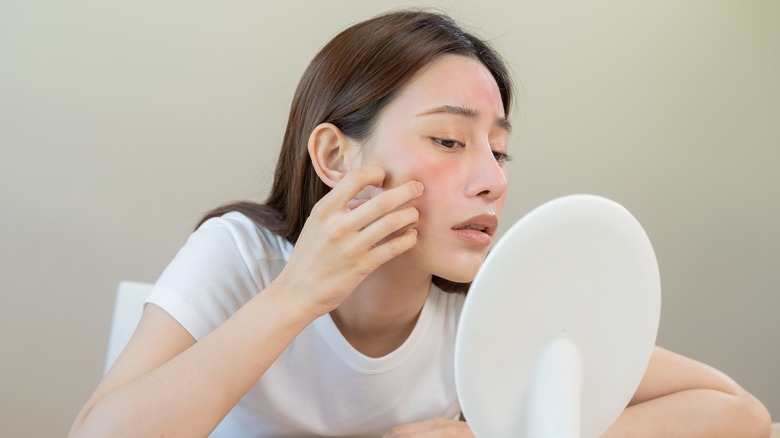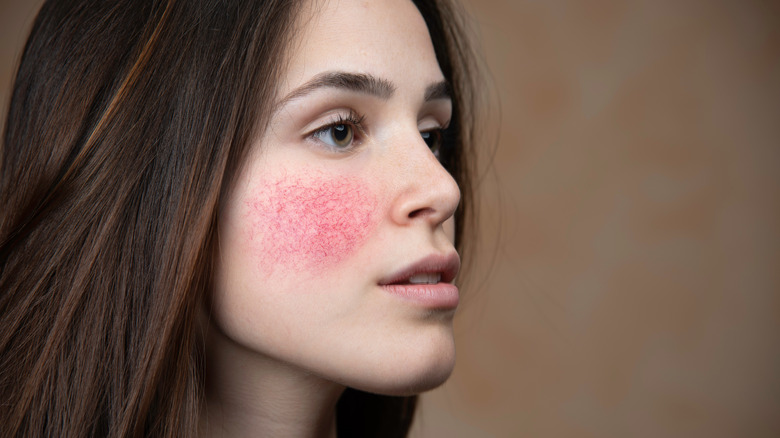Foods You Never Realized Were Causing Your Rosacea Flare Ups
Do you suffer from Rosacea? If you do, you know that anything and everything can cause a flare up. Sun exposure, stress, alcohol – it seems like nothing is off limits. But what if some of the foods you're eating are contributing to your flare ups? What you eat can contribute to your Rosacea flare ups as much as many other factors. Some common triggers for Rosacea flare ups include spicy foods, hot drinks, and anything that causes your face to flush. But there are other, less obvious culprits as well. Chocolate is a common food that may be causing your Rosacea problems (via The Healthy). Chocolate contains caffeine and other substances that can cause your face to flush and trigger a flare up. If you can't live without chocolate, try eating dark chocolate instead of milk chocolate, as it is less likely to trigger something.
Tomatoes are another food that can trigger Rosacea flare ups. They contain a substance called lycopene, which can cause your face to flush. Dairy can be a big trigger for Rosacea sufferers as well. If you find that you're having more flare ups than usual, try cutting back on dairy or eliminating it from your diet altogether and see if that makes a difference. If you find that any of these foods cause a flare up, try reducing your intake or avoiding them completely.
What is Rosacea?
Rosacea is a chronic skin condition that causes redness and inflammation on the face (via Mayo Clinic). It is most common in middle-aged women but can occur in men and women of all ages. Common symptoms of Rosacea include redness, flushing, and bumps on the face. Rosacea is often mistaken for acne, eczema, or an allergic reaction. The cause of Rosacea is not well-known, but it is thought to be a combination of genetic and environmental factors.
There is no cure for Rosacea, but there are treatments available to help manage the symptoms. Some medications can help reduce redness and inflammation. Laser therapy and other light-based treatments can also be used to treat Rosacea. Lifestyle changes, like avoiding foods that cause flare ups and using sunscreen regularly, can also help manage the symptoms of Rosacea. If you think you may have Rosacea, see a board-certified dermatologist or healthcare provider for diagnosis and treatment. They can help you determine if you have Rosacea or another skin condition and develop a treatment plan that is right for you.


